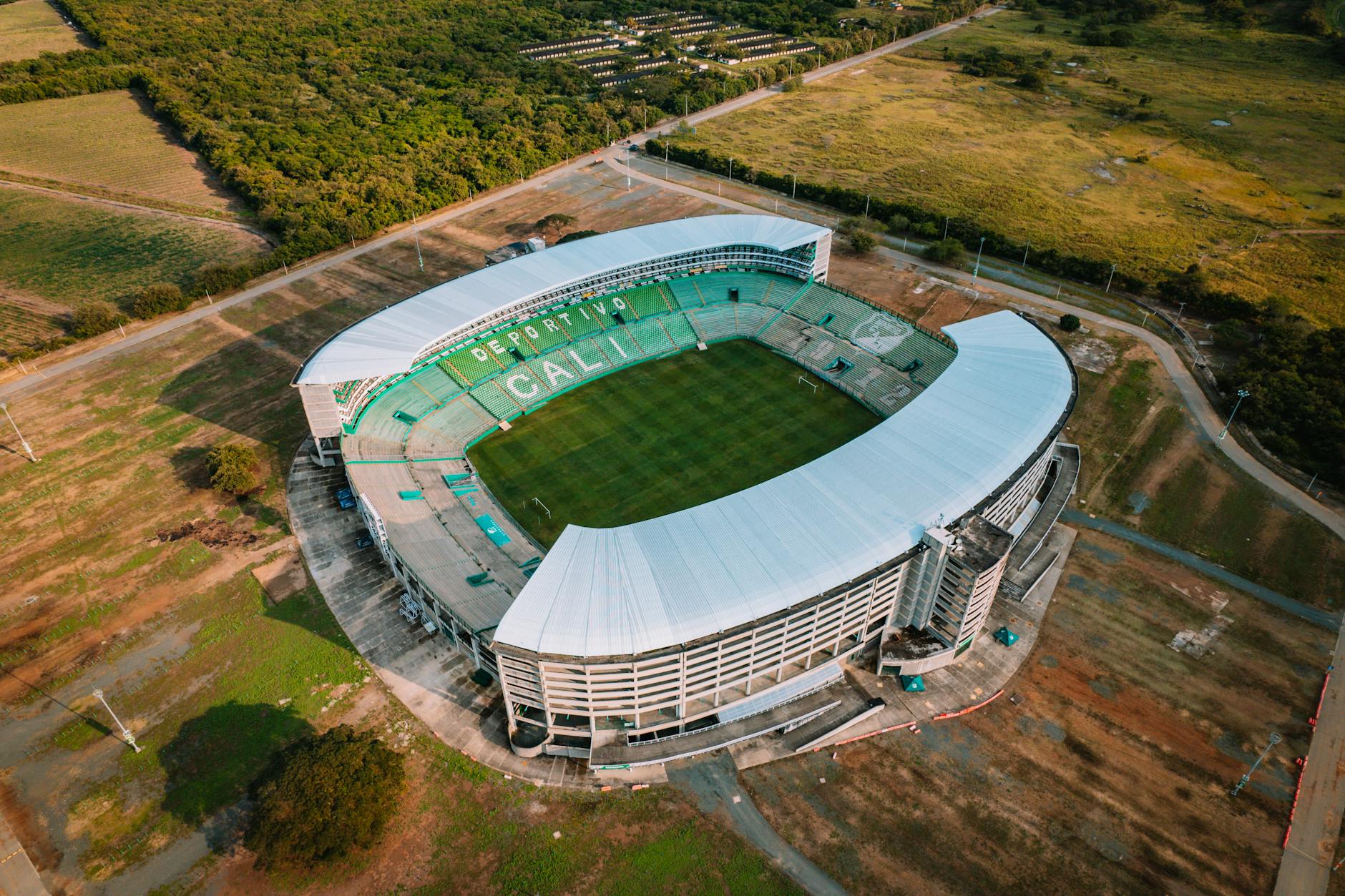This article delves into the most common types of legal cases in the United States and offers expert guidance on how to find the most qualified attorneys in major metropolitan areas.
Personal injury cases are a significant portion of legal disputes in the U.S., often stemming from accidents, negligence, or intentional harm. Victims may seek compensation for medical expenses, lost wages, and emotional distress. To find a competent personal injury attorney, consider the following:
- Experience: Look for attorneys who specialize in personal injury law and have a proven track record of successful settlements.
- Referrals: Ask friends or family for recommendations or consult online reviews to gauge an attorney’s reputation.
- Consultation: Many attorneys offer free initial consultations, allowing you to assess their approach and expertise.
Medical malpractice occurs when healthcare professionals fail to provide the expected standard of care, resulting in patient harm. These cases can be complex, requiring specialized legal knowledge. When selecting a medical malpractice attorney, consider:
- Specialization: Choose a lawyer with specific experience in medical malpractice cases.
- Credentials: Check for board certifications and memberships in relevant legal associations.
- Success Rate: Evaluate the attorney’s history of verdicts and settlements in similar cases.
Breach of contract cases arise when one party fails to fulfill their obligations as outlined in a contract. To effectively address these disputes, it is essential to hire an attorney who understands contract law. Key factors to consider include:
- Negotiation Skills: Look for an attorney experienced in negotiating settlements to avoid lengthy litigation.
- Litigation Experience: If a settlement is not possible, ensure the attorney has robust litigation experience.
- Client Reviews: Research client testimonials to assess the attorney’s effectiveness and approach.
Property disputes can involve issues related to ownership, boundaries, or zoning laws. These disputes often require a knowledgeable real estate attorney. When searching for legal representation, consider:
- Local Expertise: Choose an attorney familiar with local property laws and regulations.
- Negotiation Tactics: An effective attorney should be skilled in negotiation to resolve disputes amicably.
- Track Record: Review past case outcomes to understand the attorney’s effectiveness in property disputes.
Landlord-tenant disputes often arise from lease agreements, eviction processes, and habitability issues. To protect your rights, hiring a competent attorney is crucial. Key considerations include:
- Experience with Tenant Rights: Look for attorneys who specialize in tenant rights and have a comprehensive understanding of housing laws.
- Local Knowledge: Ensure the attorney is well-versed in local landlord-tenant laws.
- Availability: Choose an attorney who is responsive and available for consultations.
Defamation cases involve false statements that damage a person’s reputation. To navigate these sensitive issues, hiring an attorney experienced in media law is essential. Consider the following:
- Specialization: Look for attorneys who focus on defamation and have handled similar cases successfully.
- Understanding of Media Law: Ensure the attorney has a strong grasp of First Amendment rights and media regulations.
- Reputation: Research the attorney’s standing in the legal community and past client experiences.
Employment disputes can range from wrongful termination to discrimination claims. Finding a lawyer specializing in employment law is critical. Important aspects to consider include:
- Experience in Employment Law: Choose an attorney with a strong background in employment-related cases.
- Client Advocacy: Look for a lawyer who prioritizes client interests and has a reputation for fighting for employee rights.
- Consultation Process: Evaluate how the attorney approaches consultations and assesses your case.
Product liability cases arise when consumers are harmed by defective products. A skilled attorney can help hold manufacturers accountable. When selecting legal representation, consider:
- Experience with Product Liability: Look for attorneys who have successfully handled product liability claims.
- Resources: Ensure the attorney has access to expert witnesses and resources to strengthen your case.
- Client Feedback: Research client testimonials to gauge the attorney’s effectiveness.
Wrongful death claims are filed when a person’s death is caused by another’s negligence or misconduct. These cases require compassionate legal representation. Key factors include:
- Empathy and Understanding: Choose an attorney who demonstrates compassion and sensitivity to your situation.
- Experience with Similar Cases: Look for attorneys who have successfully handled wrongful death claims.
- Transparent Communication: Ensure the attorney maintains open communication throughout the legal process.
Class action lawsuits allow a group of individuals to sue a defendant collectively. Selecting an attorney with experience in class actions is essential. Consider the following:
- Track Record: Choose an attorney with a history of successful class action outcomes.
- Resources: Ensure the attorney has the resources to manage complex litigation.
- Client Support: Look for attorneys who provide dedicated support and communication to class members.
Assault and battery cases involve intentional harm or threats of harm. A criminal defense attorney can help protect your rights. Key considerations include:
- Experience in Criminal Defense: Look for attorneys who specialize in criminal law and have a strong defense record.
- Understanding of State Laws: Ensure the attorney is knowledgeable about local laws and penalties.
- Case Strategy: Discuss the attorney’s approach to formulating a defense strategy.
Cybercrime and white-collar crimes, such as fraud and embezzlement, require specialized legal knowledge. Hiring a lawyer familiar with these cases is crucial. Consider the following:
- Specialization: Look for attorneys who focus on cyber and white-collar crime.
- Technical Knowledge: Ensure the attorney has a strong understanding of technology and relevant laws.
- Reputation: Research the attorney’s reputation in handling complex cases.
Personal Injury Cases
Personal injury cases represent a significant portion of legal disputes in the United States. These cases typically arise from accidents, negligence, or intentional harm, and they can encompass a wide range of incidents, including car accidents, workplace injuries, slip and falls, and more. Understanding how to select the right attorney for your personal injury case is crucial for achieving a favorable outcome.
When searching for a qualified personal injury attorney, consider the following factors:
- Experience: Look for an attorney with a proven track record in personal injury cases. An experienced lawyer will understand the nuances of the law and how to effectively advocate for your rights.
- Specialization: Personal injury law is a specialized field. Make sure the attorney you choose focuses exclusively on personal injury cases, as this will ensure they are up-to-date with the latest legal developments and strategies.
- Reputation: Research potential attorneys online. Look for reviews and testimonials from previous clients. A lawyer with a strong reputation is more likely to provide the quality of service you need.
- Communication: Your attorney should be approachable and willing to communicate openly. You should feel comfortable discussing your case and asking questions throughout the process.
- Contingency Fees: Many personal injury lawyers work on a contingency fee basis, meaning they only get paid if you win your case. Be sure to clarify their fee structure upfront.
Finding the right attorney in major metropolitan areas like New York City, Los Angeles, or Chicago can be challenging due to the sheer number of legal professionals available. Here are some proven methods to streamline your search:
- Referrals: Ask friends, family, or colleagues for recommendations. Personal referrals can provide valuable insights into an attorney’s capabilities and client service.
- Online Directories: Utilize legal directories such as Avvo or FindLaw. These platforms allow you to search for attorneys by specialty and location, along with client ratings and reviews.
- Consultation Meetings: Many attorneys offer free initial consultations. Use this opportunity to discuss your case and assess whether the attorney is a good fit for your needs.
While searching for a personal injury attorney, be aware of potential red flags. Avoid attorneys who make unrealistic promises about the outcome of your case or those who pressure you into signing a contract quickly. Trust your instincts; if something feels off, it’s worth considering other options.
In conclusion, personal injury cases require careful consideration when selecting legal representation. By focusing on experience, specialization, and reputation, and by utilizing effective search methods, you can find a qualified attorney who will advocate for your rights and help you navigate the complexities of your case.
Medical Malpractice Cases
Medical malpractice refers to the negligence of healthcare professionals that results in harm to patients. This can include a wide range of situations such as misdiagnosis, surgical errors, medication mistakes, or failure to provide appropriate treatment. Understanding the nuances of medical malpractice is essential for anyone considering legal action.
The complexity of medical malpractice cases stems from the need to prove that the healthcare provider failed to meet the accepted standard of care. This often requires expert testimony from other medical professionals. Therefore, finding a specialized lawyer with experience in medical cases is vital for navigating these claims effectively.
When searching for a qualified medical malpractice attorney, consider the following factors:
- Experience and Specialization: Look for attorneys who specialize in medical malpractice law. They should have a proven track record of handling similar cases and winning favorable outcomes.
- Reputation: Research the attorney’s reputation within the legal community and among past clients. Online reviews, testimonials, and peer ratings can provide valuable insights.
- Initial Consultation: Many lawyers offer free initial consultations. Use this opportunity to discuss your case and gauge their understanding and approach.
- Fee Structure: Understand the attorney’s fee structure. Most medical malpractice cases are handled on a contingency basis, meaning you only pay if you win. Ensure you are clear on any potential costs involved.
- Communication: Choose a lawyer who communicates clearly and promptly. You want someone who will keep you informed throughout the process and answer your questions.
In major metropolitan areas such as New York City and Los Angeles, numerous resources can aid in your search for a medical malpractice attorney. Websites like Avvo and FindLaw allow you to search for lawyers by specialty and location. Additionally, local bar associations often provide referral services that can connect you with qualified attorneys.
Be cautious of red flags when selecting a lawyer. Avoid attorneys who make unrealistic promises about the outcome of your case or those who pressure you into signing contracts without fully understanding the terms. A reputable attorney should be transparent about the potential risks and challenges associated with your case.
Ultimately, the right medical malpractice lawyer can make a significant difference in the outcome of your case. They will not only help you navigate the legal complexities but also provide the support and guidance you need during a challenging time. When you have a solid legal partner by your side, you can focus on your recovery while they work diligently to advocate for your rights.
Breach of Contract Disputes
are a significant area of legal concern in the United States. These cases arise when one party fails to uphold their end of a legally binding agreement, causing potential financial harm or other damages to the other party. Understanding the nuances of breach of contract cases is essential for anyone involved in such disputes.
In many instances, a breach can be categorized into several types:
- Minor Breach: Occurs when the breaching party fails to perform a small part of the contract, which does not significantly impact the overall agreement.
- Material Breach: A substantial failure to perform that permits the non-breaching party to terminate the contract and seek damages.
- Anticipatory Breach: When one party indicates, either through words or actions, that they will not fulfill their contractual obligations before the due date.
When faced with a breach of contract, it is crucial to consult a knowledgeable attorney who specializes in contract law. An experienced lawyer can assist in assessing your situation by reviewing the contract’s terms, determining the nature of the breach, and advising on the best course of action. They can help you pursue appropriate remedies, which may include:
- Damages: Financial compensation for losses incurred due to the breach.
- Specific Performance: A legal order requiring the breaching party to fulfill their contractual obligations.
- Rescission: Cancellation of the contract, returning both parties to their pre-contractual positions.
Finding the right attorney for a breach of contract case requires careful consideration. Here are some effective strategies:
- Referrals: Ask friends, family, or colleagues for recommendations based on their experiences.
- Online Reviews: Use platforms like Avvo, Martindale-Hubbell, or Google Reviews to gauge an attorney’s reputation.
- Consultation: Schedule initial consultations with multiple attorneys to discuss your case and evaluate their approach.
When selecting an attorney, consider the following credentials:
- Specialization: Look for a lawyer who specializes in contract law and has a proven track record in breach of contract cases.
- Experience: An attorney with years of experience in handling contract disputes is more likely to navigate the complexities of your case effectively.
- Communication Skills: Choose a lawyer who communicates clearly and promptly, keeping you informed at every stage of the process.
Be wary of red flags when hiring an attorney. Avoid those who:
- Promise Guaranteed Results: No lawyer can guarantee a specific outcome, especially in legal disputes.
- Pressure You to Sign: A reputable attorney will give you time to make an informed decision.
- Have Poor Communication: If they are unresponsive or unclear in their communication, it may indicate a lack of professionalism.
In cities like New York, Los Angeles, and Chicago, the legal landscape can be particularly competitive. Therefore, it is essential to conduct thorough research and make informed decisions. Utilizing legal directories, local bar associations, and online platforms can help you find qualified attorneys in your area.
Ultimately, having a competent attorney by your side can significantly impact the outcome of your breach of contract case. They can provide the expertise needed to navigate the legal system, advocate for your rights, and help you achieve a favorable resolution.
Property Disputes
Property disputes can be complex and emotionally charged, often stemming from issues related to ownership, boundaries, and zoning regulations. These conflicts can arise between neighbors, family members, or even business partners, making the resolution process critical to maintaining relationships and protecting investments.
When dealing with property disputes, it is essential to understand the various factors that can influence the outcome. For instance, ownership disputes may arise from unclear titles or inheritance issues, while boundary disputes often involve disagreements over property lines, which can be exacerbated by misinterpretations of surveys or historical documents. Additionally, zoning issues can complicate property use, particularly if one party believes that their rights have been infringed upon by local regulations or by another property owner’s actions.
To navigate these challenges effectively, selecting a qualified real estate attorney with expertise in local laws is paramount. Here are some practical steps to consider when searching for the right legal representation:
- Research Local Expertise: Look for attorneys who specialize in property law and have a proven track record in handling similar disputes in your area. Local knowledge can make a significant difference in understanding specific regulations and practices.
- Check Credentials: Verify the attorney’s qualifications, including their education, years of experience, and any specialized certifications in real estate law. Membership in professional organizations can also indicate a commitment to staying updated on industry developments.
- Read Reviews: Online reviews and testimonials can provide insight into the attorney’s reputation and client satisfaction. Pay attention to feedback regarding their communication style, responsiveness, and success in resolving disputes.
- Consult Multiple Attorneys: Schedule consultations with several attorneys to discuss your case. This will allow you to compare their approaches and determine who you feel most comfortable working with.
- Ask About Fees: Understand the attorney’s fee structure upfront. Some may charge hourly rates, while others might work on a contingency basis. Ensure that you are clear about any potential costs before proceeding.
- Trust Your Instincts: Choose an attorney you feel comfortable with, as a strong attorney-client relationship can significantly impact the resolution of your dispute.
In addition to selecting the right attorney, it is crucial to be proactive in resolving property disputes. Attempting mediation or negotiation before resorting to litigation can save time and resources. Many disputes can be settled amicably when both parties are willing to communicate openly and seek common ground. If negotiation fails, however, having a skilled attorney by your side can help you navigate the legal system effectively.
In conclusion, property disputes can be challenging, but with the right legal representation and a proactive approach, you can work towards a resolution that protects your interests. Always remember to do your due diligence in selecting an attorney and consider alternative dispute resolution methods to avoid the stress and expense of litigation.
Landlord-Tenant Disputes
Landlord-tenant disputes are a significant aspect of rental relationships, often leading to conflicts that can escalate into legal battles. These disputes can arise from various issues, including lease agreements, eviction processes, and habitability concerns. Understanding your rights as a tenant or landlord is crucial in navigating these conflicts effectively.
One common issue in landlord-tenant disputes is the interpretation of lease agreements. These documents outline the responsibilities of both parties and can often lead to misunderstandings. For instance, if a landlord fails to maintain the property or address necessary repairs, tenants may have grounds to withhold rent or terminate the lease. Conversely, landlords may seek eviction if tenants violate lease terms, such as failing to pay rent or causing property damage.
Another critical aspect of landlord-tenant disputes is the eviction process. Eviction laws vary by state, and it’s essential for both landlords and tenants to understand the legal procedures involved. A wrongful eviction can result in significant legal consequences for landlords, including potential damages awarded to the tenant. Therefore, landlords must follow the proper legal channels, which often include providing a written notice and filing an eviction lawsuit in court.
Habitability issues are also at the forefront of many disputes. Tenants have the right to live in a safe and habitable environment, which includes functioning plumbing, heating, and electrical systems. If a landlord fails to address these issues, tenants may have the right to take legal action. In many jurisdictions, tenants can also report habitability issues to local health or building authorities, which can compel landlords to make necessary repairs.
When faced with landlord-tenant disputes, hiring a competent attorney is essential. A qualified attorney can help protect your interests, whether you are a landlord seeking to evict a tenant or a tenant fighting for your rights. Here are some tips for finding the right attorney:
- Look for specialization: Seek attorneys who specialize in landlord-tenant law. Their expertise will be invaluable in navigating the complexities of your case.
- Check credentials: Verify the attorney’s qualifications, including their education, bar admission, and any relevant certifications.
- Read reviews: Look for client reviews and testimonials to gauge the attorney’s reputation and success rate in handling similar cases.
- Schedule consultations: Many attorneys offer free initial consultations. Use this opportunity to discuss your case and assess whether the attorney is a good fit for your needs.
- Avoid red flags: Be cautious of attorneys who make unrealistic promises or have a history of disciplinary actions. Trust your instincts when assessing their professionalism.
In major metropolitan areas like New York City, Los Angeles, and Chicago, the demand for legal services in landlord-tenant disputes is high. Therefore, it’s crucial to act quickly and seek legal advice as soon as a dispute arises. By understanding your rights and responsibilities, and by hiring a skilled attorney, you can navigate landlord-tenant disputes more effectively and protect your interests.
Defamation Cases (Libel/Slander)
Defamation cases, encompassing both libel and slander, are legal disputes that arise when false statements are made about an individual, causing harm to their reputation. In today’s digital age, where information spreads rapidly through social media and online platforms, understanding the nuances of defamation law is more critical than ever. This article will delve into the intricacies of defamation cases and provide guidance on how to find the right attorney to navigate these complex issues.
Defamation can occur in two primary forms: libel, which refers to written statements, and slander, which pertains to spoken statements. Both types of defamation can lead to significant emotional distress and damage to a person’s professional and personal life. To successfully prove defamation, the plaintiff must demonstrate that the statement was false, damaging, and made with a certain level of fault, depending on whether the plaintiff is a public or private figure.
When faced with a defamation issue, it is essential to seek out a lawyer who specializes in media law or defamation cases. Here are some practical steps to take when searching for the right attorney:
- Research Credentials: Look for attorneys with a solid background in media law and a track record of handling defamation cases. Check their education, years of experience, and any notable cases they have worked on.
- Read Reviews: Online reviews and testimonials from previous clients can provide insight into an attorney’s reputation and effectiveness. Websites such as Avvo and Martindale-Hubbell can be helpful.
- Consultations: Many lawyers offer free initial consultations. Use this opportunity to discuss your case, ask questions about their experience, and gauge their understanding of defamation law.
- Assess Communication Skills: A good attorney should be able to explain complex legal concepts in a way that is easy to understand. Effective communication is crucial for a successful attorney-client relationship.
- Evaluate Fees: Understand the attorney’s fee structure. Some may work on a contingency basis, while others might charge hourly rates. Be clear on what to expect regarding costs.
In major metropolitan areas like New York City, Los Angeles, and Chicago, the competition among lawyers is fierce. This can work to your advantage, as it allows you to find a highly qualified attorney who fits your needs. Additionally, these cities often have legal resources and organizations that can assist you in your search.
It is also important to be aware of potential red flags when hiring a lawyer for a defamation case:
- Lack of Experience: Be cautious of attorneys who do not have specific experience in defamation or media law.
- Pressure Tactics: Avoid lawyers who rush you into making decisions or signing contracts without giving you time to consider your options.
- Unclear Fee Structures: If an attorney is not transparent about their fees, this could lead to unexpected costs down the line.
In conclusion, defamation cases require a nuanced understanding of the law and a strategic approach to litigation. By taking the time to research and find a qualified attorney, you can effectively protect your reputation and seek justice for any harm caused by false statements. Remember, the right lawyer can make a significant difference in the outcome of your case.
Employment Disputes
represent a significant area of legal conflict in the United States, encompassing a wide range of issues such as wrongful termination, discrimination, harassment, and unpaid wages. These disputes can arise in various workplace settings and can have serious implications for both employees and employers. Understanding your rights and the legal avenues available to you is crucial in navigating these complex situations.
When facing an employment dispute, the first step is to seek out a lawyer who specializes in employment law. This specialization is vital because employment law is a nuanced field that requires a deep understanding of both federal and state regulations. A qualified attorney can help you assess your situation, determine whether you have a valid claim, and guide you through the process of filing a complaint or pursuing litigation.
In major metropolitan areas such as New York City, Los Angeles, and Chicago, there are numerous legal firms and individual attorneys who focus specifically on employment disputes. Here are some key factors to consider when selecting an attorney:
- Experience: Look for lawyers who have a proven track record in handling cases similar to yours. Ask about their success rates and the types of cases they have won.
- Credentials: Check their educational background and any specialized training in employment law. Membership in professional organizations, such as the National Employment Lawyers Association, can also be a positive indicator.
- Client Reviews: Look for testimonials and reviews from previous clients. Websites like Avvo and Martindale-Hubbell provide ratings and reviews that can help you gauge an attorney’s reputation.
- Consultation: Many attorneys offer free initial consultations. Use this opportunity to ask questions about their approach to your case and their fees.
- Communication: Ensure that the attorney communicates clearly and promptly. You want someone who will keep you informed throughout the process.
It’s essential to be aware of red flags when hiring an attorney. For instance, be cautious of lawyers who guarantee outcomes or pressure you into making quick decisions. A reputable attorney will provide honest assessments and allow you to make informed choices without undue pressure.
In addition to finding a qualified attorney, it’s also important to document all interactions related to your employment dispute. Keep records of emails, performance reviews, and any correspondence with your employer. This documentation can be invaluable in building your case.
Ultimately, employment disputes can be challenging and stressful. However, with the right legal representation, you can navigate these challenges effectively and work towards a resolution that protects your rights and interests.
Product Liability Cases
Product liability cases represent a significant area of legal dispute in the United States, arising when consumers suffer harm due to defective products. These cases can involve a wide range of items, including household appliances, automobiles, pharmaceuticals, and even food products. Understanding the intricacies of product liability law is essential for anyone who has been affected by such issues. A skilled attorney can help victims hold manufacturers accountable and pursue compensation for damages incurred.
In the realm of product liability, there are typically three main categories under which a case may fall: design defects, manufacturing defects, and failure to warn. Design defects occur when the product is inherently unsafe due to its design, while manufacturing defects happen during the production process, rendering an otherwise safe design dangerous. Failure to warn refers to situations where manufacturers do not adequately inform consumers of potential risks associated with their products.
When seeking legal representation for a product liability case, it is crucial to consider several factors:
- Experience: Look for attorneys who specialize in product liability law and have a proven track record of successful cases. Their experience can significantly influence the outcome of your claim.
- Reputation: Research potential lawyers through online reviews, testimonials, and professional ratings. A well-respected attorney is more likely to provide quality representation.
- Consultations: Many attorneys offer free initial consultations. Use this opportunity to discuss your case and gauge their expertise and approach.
- Fees: Understand the fee structure before hiring an attorney. Many product liability lawyers work on a contingency fee basis, meaning they only get paid if you win your case.
In major metropolitan areas like New York City, Los Angeles, and Chicago, finding the right attorney can be challenging due to the sheer number of legal professionals available. Here are some practical methods to help you narrow down your options:
- Online Directories: Utilize legal directories such as Avvo or FindLaw to search for attorneys based on their specialties and locations.
- Referrals: Ask friends, family, or colleagues for recommendations. Personal experiences can provide valuable insights into an attorney’s capabilities.
- Professional Associations: Look for lawyers who are members of reputable organizations, such as the American Association for Justice (AAJ), which indicates a commitment to the field.
While seeking legal representation, be aware of potential red flags. Avoid attorneys who make unrealistic promises about the outcome of your case or who seem more interested in settling quickly than pursuing the best possible outcome for you. Additionally, if an attorney is unwilling to provide references or discuss their past cases, it may be wise to continue your search.
Ultimately, product liability cases can be complex and emotionally taxing for victims. By taking the time to find a qualified and trustworthy attorney, you can enhance your chances of achieving a favorable outcome. Remember, the right legal representation can make a significant difference in your journey toward justice and compensation for your injuries.
Wrongful Death Cases
represent a profound legal challenge, as they arise from the tragic loss of life due to another party’s negligence or intentional misconduct. These cases not only involve complex legal principles but also require a sensitive approach to the emotional turmoil faced by the bereaved family. Understanding the intricacies of wrongful death claims is crucial for those seeking justice and compensation for their loss.
In the United States, wrongful death claims can stem from various situations, including automobile accidents, medical malpractice, workplace incidents, and criminal acts. Each case is unique, and the specific circumstances surrounding the death will heavily influence the legal strategy employed. For instance, in cases of medical malpractice, it is essential to establish that the healthcare provider failed to meet the standard of care, resulting in the patient’s untimely death. Similarly, in workplace accidents, proving negligence on the part of the employer or a third party is vital.
When pursuing a wrongful death claim, it is imperative to seek compassionate legal representation. Look for attorneys who specialize in wrongful death cases and have a proven track record of success. In major metropolitan areas like New York City and Los Angeles, you can utilize various resources to find qualified lawyers:
- Legal Directories: Websites like Avvo and FindLaw provide listings of attorneys along with reviews and ratings.
- Referrals: Ask friends, family, or colleagues for recommendations based on their experiences.
- Bar Associations: Local bar associations often have referral services to connect you with reputable lawyers in your area.
When evaluating potential attorneys, consider the following credentials:
- Experience: Look for attorneys with extensive experience handling wrongful death cases.
- Success Rate: Inquire about their track record in obtaining favorable settlements or verdicts.
- Client Testimonials: Read reviews or request references to gauge past clients’ satisfaction.
- Communication Skills: Choose a lawyer who communicates clearly and empathetically, as this can significantly impact your experience.
It is equally important to be aware of red flags when hiring a wrongful death attorney:
- Lack of Specialization: Avoid lawyers who do not focus on wrongful death or personal injury cases.
- High Pressure Tactics: Be cautious of attorneys who rush you into making decisions or signing contracts.
- Unclear Fee Structures: Ensure that the attorney provides a transparent explanation of their fees and payment structure.
In wrongful death cases, the emotional burden can be overwhelming. Therefore, it is essential to choose a lawyer who not only possesses the requisite legal expertise but also demonstrates empathy and understanding. An attorney who is genuinely invested in your case can make a significant difference in navigating the legal system and achieving a just outcome.
In summary, wrongful death claims are complex and emotionally charged. When seeking legal representation, prioritize finding an attorney with the right experience, a solid reputation, and a compassionate approach. By taking the time to research and evaluate potential lawyers, you can ensure that you have the best possible support during this challenging time.
Class Action Lawsuits
serve as a powerful legal tool that enables a group of individuals to collectively sue a defendant, typically when their claims share common issues. This type of litigation is particularly effective in cases where the individual damages may be too small to justify separate lawsuits, allowing plaintiffs to band together to pursue their claims more efficiently. Examples of class action lawsuits can include consumer fraud, employment discrimination, and product liability cases, where many individuals are affected by the same issue.
When considering a class action lawsuit, it is crucial to choose an attorney who possesses specific expertise in this area of law. An experienced attorney will understand the complexities involved in class actions, including the procedural requirements and the nuances of representing a large group of plaintiffs. Here are several important factors to consider when selecting the right attorney:
- Experience in Class Actions: Look for attorneys who have a proven track record of successfully handling class action lawsuits. They should be familiar with the specific laws and regulations that govern these cases.
- Reputation: Research the attorney’s reputation in the legal community. This can include reading client reviews, checking their standing with the state bar, and looking for any disciplinary actions.
- Resources: Class action lawsuits often require significant resources, including financial backing and access to expert witnesses. Ensure the attorney has the necessary resources to support the case.
- Communication Skills: Effective communication is vital in a class action. The attorney should be able to clearly explain the process to the group and keep everyone informed throughout the litigation.
- Fee Structure: Understand the attorney’s fee structure. Many class action attorneys work on a contingency basis, meaning they only get paid if you win the case. Ensure you are clear on any potential costs involved.
In major metropolitan areas like New York City, Los Angeles, and Chicago, finding the right attorney can be facilitated through various platforms. Websites such as Avvo, FindLaw, and Martindale-Hubbell allow you to search for lawyers based on their practice areas, client reviews, and ratings. Additionally, local bar associations often provide referral services that can connect you with qualified attorneys in your area.
Another effective method for finding a reputable attorney is through personal recommendations. Speaking with friends, family, or colleagues who have experience with class action lawsuits can provide valuable insights and lead you to trustworthy legal representation.
While searching for an attorney, be mindful of red flags that may indicate a less than ideal choice. These can include:
- Overpromising results: Be cautious of attorneys who guarantee specific outcomes, as no lawyer can predict the result of a lawsuit.
- Pressure tactics: Avoid attorneys who pressure you to sign contracts quickly or discourage you from seeking multiple opinions.
- Lack of transparency: An attorney should be open about their experience, fees, and the potential risks involved in your case.
Overall, class action lawsuits can provide a significant avenue for justice for individuals who may not have the means to pursue their claims alone. By carefully selecting an attorney with the right experience and resources, you can enhance your chances of a favorable outcome. Remember, the right legal representation is crucial in navigating the complexities of class action litigation.
Criminal Offenses: Assault and Battery
Assault and battery cases represent a significant area of criminal law, involving incidents where individuals intentionally cause harm or threaten to do so. These offenses can range from minor altercations to severe physical assaults, and they often lead to serious legal consequences for those involved. Understanding the nuances of these cases is crucial for anyone facing such charges or accusations.
In the realm of criminal law, assault typically refers to the act of threatening someone with imminent harm, while battery involves actual physical contact and harm. The legal definitions can vary by state, but the core concepts remain consistent. In many jurisdictions, assault can be classified as either simple or aggravated, with aggravated assault attracting more severe penalties due to factors such as the use of a weapon or the intent to commit a more serious crime.
When confronted with assault and battery charges, it is essential to seek the assistance of a criminal defense attorney who specializes in this area of law. A skilled attorney can provide invaluable support in protecting your rights and formulating a strong defense strategy. Here are some key considerations when selecting the right legal representation:
- Experience and Specialization: Look for an attorney with extensive experience in handling assault and battery cases. Their familiarity with local laws and court procedures can make a significant difference in the outcome of your case.
- Track Record: Inquire about the attorney’s success rate in similar cases. A proven track record can provide confidence in their ability to navigate the complexities of your situation.
- Client Reviews and Testimonials: Research online reviews and testimonials from former clients. This feedback can offer insights into the attorney’s communication style, professionalism, and effectiveness.
- Consultation: Schedule consultations with potential attorneys to discuss your case. This initial meeting allows you to gauge their understanding of your situation and their proposed strategies for defense.
- Fees and Payment Structures: Understand the attorney’s fee structure upfront. Some may charge a flat fee, while others work on an hourly basis or may offer payment plans. Ensure that you are comfortable with the financial arrangements before proceeding.
In major metropolitan areas like New York City, Los Angeles, and Chicago, the competition among attorneys can be intense. Therefore, it is crucial to be diligent in your search. Utilize online platforms such as Avvo or FindLaw to compare attorneys, read reviews, and check their credentials. Additionally, local bar associations can provide referrals to qualified attorneys in your area.
While seeking legal representation, be aware of potential red flags. Avoid attorneys who make unrealistic promises about the outcome of your case or those who pressure you into making quick decisions. A reputable attorney will provide honest assessments and allow you to make informed choices without coercion.
In conclusion, navigating assault and battery charges can be daunting, but with the right legal support, individuals can effectively protect their rights and work towards a favorable resolution. By choosing an experienced criminal defense attorney and being informed throughout the process, you can position yourself for the best possible outcome.
Cybercrime and White Collar Crime
Cybercrime and white-collar crime are increasingly prevalent in today’s digital age, affecting individuals and businesses alike. These crimes encompass a range of illegal activities, including fraud, embezzlement, and various forms of cyber offenses. Navigating the legal landscape surrounding these crimes requires specialized knowledge, making it imperative to hire a lawyer who is well-versed in these complex cases.
White-collar crimes, often characterized by deceit and motivated by financial gain, can have devastating impacts on victims. For instance, fraud can take many forms, such as identity theft, credit card fraud, and securities fraud. Similarly, embezzlement involves the misappropriation of funds entrusted to an individual, often by an employer. These crimes may not involve physical violence, but their repercussions can be just as severe, leading to significant financial loss and emotional distress for victims.
When seeking legal representation for cybercrime or white-collar crime cases, it is crucial to consider the following factors:
- Experience and Specialization: Look for a lawyer who has extensive experience specifically in cybercrime and white-collar crime. Their familiarity with the intricacies of these cases, including relevant laws and regulations, can significantly influence the outcome of your case.
- Track Record: Investigate the attorney’s success rate in handling similar cases. A proven track record can give you confidence in their ability to navigate the complexities of your situation.
- Client Reviews: Read reviews and testimonials from former clients. Positive feedback can indicate a lawyer’s reliability and effectiveness in dealing with complex legal matters.
- Consultation: Many lawyers offer free initial consultations. Use this opportunity to assess their communication style, approach to your case, and overall compatibility.
In major metropolitan areas like New York City, Los Angeles, and Chicago, numerous resources are available to help you find qualified legal representation. Online platforms such as Avvo, FindLaw, and LegalMatch can connect you with attorneys who specialize in cybercrime and white-collar crime. Additionally, local bar associations often provide referral services that can assist you in finding reputable lawyers in your area.
While searching for a lawyer, be mindful of potential red flags. Avoid lawyers who promise guaranteed outcomes, as legal cases can be unpredictable. Additionally, be wary of those who are unwilling to provide clear information about their fees and billing practices. Transparency is key in establishing a trustworthy attorney-client relationship.
In conclusion, the complexities of cybercrime and white-collar crime necessitate hiring a specialized attorney who can effectively navigate the legal landscape. By focusing on experience, client feedback, and utilizing available resources, individuals can find the right legal representation to protect their interests and seek justice.












